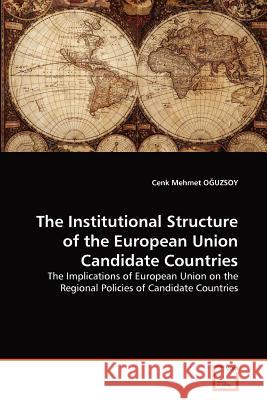The Institutional Structure of the European Union Candidate Countries » książka
The Institutional Structure of the European Union Candidate Countries
ISBN-13: 9783639363029 / Angielski / Miękka / 2011 / 248 str.
In 2004, The EU was facing with the enormous enlargement processes, which comprise thirteen new countries. Different from the EU member states, these candidate countries were suffering significant socio-economic problems and had to face with the need for adjustment of their regional policies, administrations and institutions. While twelve of these countries are definitely the member states until the year of 2007, Turkey is negotiating her membership and is highly backward status in comparison with the other candidate countries. In this context, the study, comprising the master thesis of METU in 2004, is composed of four main parts: the changing system of the EU regional policy, the realized applications of the candidate countries in the field of regional policy after the year 1989, the developments of the candidate countries' institutional structures on regional policy and the position of Turkish regional policy and institutional structure. Basically, the study investigates how the EU is following a similar system for the candidate countries in the field of regional policy and institutional structure and tries to provide significant outputs in Turkish case.
In 2004, The EU was facing with the enormous enlargement processes, which comprise thirteen new countries. Different from the EU member states, these candidate countries were suffering significant socio-economic problems and had to face with the need for adjustment of their regional policies, administrations and institutions. While twelve of these countries are definitely the member states until the year of 2007, Turkey is negotiating her membership and is highly backward status in comparison with the other candidate countries. In this context, the study, comprising the master thesis of METU in 2004, is composed of four main parts: the changing system of the EU regional policy, the realized applications of the candidate countries in the field of regional policy after the year 1989, the developments of the candidate countries institutional structures on regional policy and the position of Turkish regional policy and institutional structure. Basically, the study investigates how the EU is following a similar system for the candidate countries in the field of regional policy and institutional structure and tries to provide significant outputs in Turkish case.











